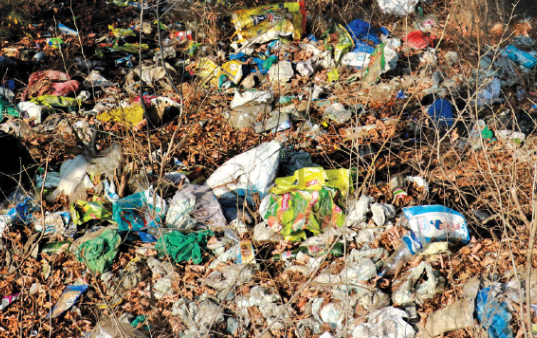A Call to Tradition: Embracing Sustainable Practices in Kashmiri Weddings
By: Javid Amin
Kashmir’s vibrant wedding season, bursting with life from May to October, paints a picture of joyous celebrations. However, beneath the festivities lies a growing concern – the environmental impact of these events. This article delves into the issue of waste generation during Kashmiri weddings and proposes a return to sustainable practices rooted in tradition.
A Feast Fit for a King, But at What Cost?
An estimated 1500-2000 weddings occur daily during peak season, leading to a staggering consumption of meat. On average, each function uses a significant amount of mutton for the iconic Wazwan, a multi-course culinary experience. While the tradition of carrying home leftover Wazwan dishes prevents food waste, a new threat emerges – plastic.
The Plastic Plague: A Threat to Paradise
Kashmir’s breathtaking beauty, a delicate ecosystem nestled in the Himalayas, faces the brunt of irresponsible waste management. Unlike the plains of India with ample space for landfills, Kashmir’s fragile environment simply cannot cope. The influx of plastic – from disposable plates and cutlery to packaging for takeaways – creates a significant problem.
A Rising Tide of Green Consciousness
A glimmer of hope emerges with the growing trend of sustainable weddings. Environmentally conscious couples and families are embracing eco-friendly practices, understanding the importance of protecting their beloved valley. While the popularity of green weddings is gaining momentum across India, it holds a special significance for Kashmir, where responsible waste management is paramount.
Rediscovering Lost Traditions: Sustainable Solutions
The key to tackling this issue lies in a beautiful reconnection with Kashmiri heritage. Here are some ways to embrace sustainability while preserving the essence of Kashmiri weddings:
- A Return to Cloth Dastarkhans: The ceremonial dining sheet, traditionally made of cloth (Dastarkhan), can be revived, replacing its plastic counterpart. This simple switch reduces plastic waste significantly.
- Clay to the Rescue: Traditional clay vessels for serving yogurt can be reintroduced, replacing the ubiquitous plastic curd bowls. These not only add an aesthetic touch but are also eco-friendly.
- Hydration with a Conscience: Opt for reusable glass, copper, or steel glasses instead of disposable plastic ones for water. Additionally, providing filtered water can eliminate the need for bottled water.
- Safer Take-Aways: Replace the hazardous thick plastic pouches used for leftover Wazwan with a combination of butter paper and thin cardboard bags. This not only reduces plastic waste but also poses a lower health risk due to hot food storage.
- Goodbye Wet Wipes, Hello Tradition: Instead of non-biodegradable wet wipes, provide cotton towels for guests. This simple change reduces waste and encourages the traditional practice of using hot water and soap for handwashing.
Beyond Convenience: A Commitment to the Future
Kashmiri weddings, three decades ago, were virtually plastic-free. Reconnecting with these sustainable traditions is not just about nostalgia, but a conscious choice. It signifies a return to practices that respect the environment and preserve the valley’s natural beauty for generations to come.
Leading by Example: Inspiring Change
Educated and well-to-do families have a crucial role to play. By embracing sustainable practices and prioritizing limited meat consumption in their weddings, they can set a powerful example for the entire community.
A Call to Action: Celebrating Responsibly
The essence of a Kashmiri wedding lies in the joy, love, and community it fosters. By embracing sustainable practices, we ensure that future generations can experience the same magic in a pristine environment. Let us join hands and celebrate responsibly, weaving a tapestry of tradition, love, and environmental consciousness for a brighter future.



